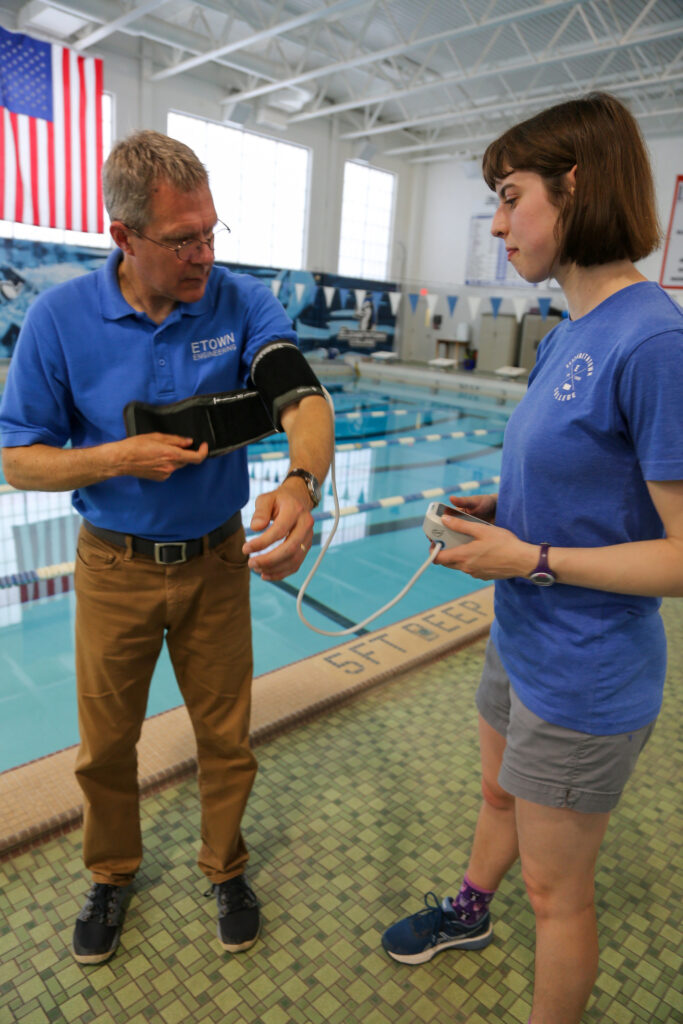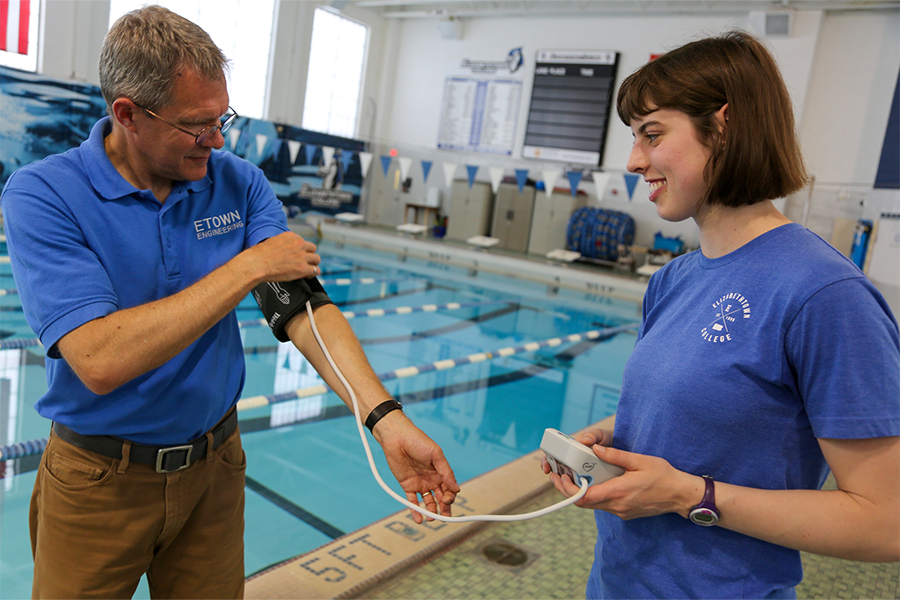Elizabethtown College Biology, Pre-Physical Therapy major and member of the women’s swimming team Sarah Marston ’24 is spending her summer on campus researching Postural Orthostatic Tachycardia Syndrome (POTS) and the use of water-based compression therapy as a potential treatment as a part of the Summer Creative Arts and Research Program (SCARP).
Marston has a personal interest in this research as she has been living with POTS for the past three years and suffered from symptoms prior to the diagnosis. POTS is a condition that causes your heart to beat faster than normal when you transition from sitting or lying down to standing up.
Marston has been actively working alongside her Etown faculty mentor, Professor of Engineering Kurt DeGoede to test treatments by having individuals wear compression leggings, as compression is known to mitigate the effect, and undergoing different testing conditions with the goal of raising awareness of POTS as only one in 5,000 people suffer from the syndrome.
Title of Research
Analysis of Compression on Postural Orthostatic Tachycardia Syndrome Symptoms
Student Researcher
Sarah Marston ’24 (Biology, Pre-Physical Therapy major)
Faculty Mentor
Kurt DeGoede, Professor of Engineering & Physics Elizabethtown College KEEN Leader
What are you researching?
Marston: My research focuses on the beneficial impact compression may have on postural orthostatic tachycardia syndrome (POTS). Many articles recommend using compression to manage POTS symptoms, but few have experimentally evaluated the effect of compression on POTS. For my research, I want to determine if compression has benefits. I will be testing compression leggings and the effect of water pressure on reducing POTS symptoms in people diagnosed with POTS.
Why did you choose this topic?
Marston: I have a personal interest in POTS, as I was diagnosed with this condition three years ago. As a pre-physical therapy major, POTS also has relevance in my future career.
What is the most interesting aspect of this research?
Marston: The most interesting part of my research is having the opportunity to contribute to the expanding knowledge on POTS. Hopefully, working with the POTS population will provide greater insights to managing this complex condition. The outcome of my research may support the current recommendation of using compression for management of POTS. If I find the opposite or no effect, that is also very exciting.
How has your faculty mentor helped you?
Marston: Working with Dr. DeGoede has been key for streamlining my thoughts and procedures for this project. He has given me great support in preparing paperwork for the project and answering any questions I have along the way.
Hear from the faculty mentor – Kurt DeGoede
“Over half a million individuals in the US are diagnosed with POTS (Postural orthostatic tachycardia syndrome),” DeGoede said. “Exercise programs can be essential tools for mitigating symptoms that can lead to significant impairment and reduced quality of life. However, exercise can also exasperate symptoms. Sarah’s study will examine the positive effect of compression on symptoms. She will examine the use of compression leggings and pool standing. In the pool, compression is stronger and more uniform than with leggings. A better understanding of the effect of compression on symptoms could enhance treatment options.”

